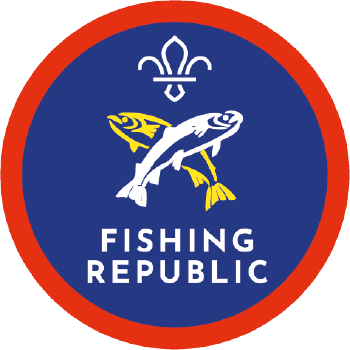
Fishing taster sessions
Before you begin
- Use the safety checklist to help you plan and risk assess your activity. Additional help to carry out your risk assessment, including examples can be found here. Don’t forget to make sure all young people and adults involved in the activity know how to take part safely.
- Make sure you’ll have enough adult helpers. You may need some parents and carers to help if you’re short on helpers.
- Make sure all adults and young people are aware of the water safety rules before undertaking any activity by the water. Check out our water safety guidance too for additional points.
- Carry out this activity with an experienced and competent adult.
- Check the weather forecast for changing conditions that affect the body of water you’re fishing.
- Always have someone else with you. You should never go alone.
- Have a throw line with you or be sure you know where one is and know how to use it.
- Pay attention to signage and warnings about the waterways you’re using.
- Be aware of the common features of your fishing environment.
- If on a boat, wear a life jacket or buoyancy aid, whichever’s applicable to your environment, and make sure it is fitted correctly.
- When freshwater fishing, set up on even ground.
- When you arrive at your fishing spot, check out the area around you and consider where you’d be able to get out of the water if you were to fall in.
- Know where you’re located and how to describe it in case you need to call the emergency services or report any hazards to a local authority.
- Only wade into the water where the current is weak.
- Keep clear from slippery banks or deep and fast flowing water.
- Beware of overhead cables. Poles and rods conduct electricity. They don't even have to be touching a cable for electricity to jump to them and cause a shock.
- Keep your space tidy. Don’t leave any trip hazards for passers-by.
- Be sure to look all around when using long poles and rods to be sure you don’t strike anyone or anything. You should look around for people, anything overhead (such as tree branches or cables) or steep slopes behind you.
- Be aware of how to safely assemble and take apart your tools. You should be particularly careful with sharp objects, such as your hooks.
- Don’t walk on ice covered water.
Organise the activity
A number of angling organisations run events for groups or taster sessions for new anglers. To find events in your area you can try the Angling Trust or the Canal and River Trust. There also may be fishing clubs in your local area that could help.
Contact one of the above groups to arrange an induction session to fishing or waterways.
Reflection
All styles of fishing are known for their reflective qualities. In fiction, fishing trips are sometimes used as a chance to escape the business of daily life, enjoy nature and relax.
Volunteers should encourage groups to make the most of this opportunity for a meditative experience and see how their body and mind feels afterwards. Do they feel calmer or more rested?
If you were out at sea for your trip and the waves got a little bumpy, it might be that group members aren’t feeling so rested after all. What else did they take from the experience?
Safety
All activities must be safely managed. You must complete a thorough risk assessment and take appropriate steps to reduce risk. Use the safety checklist to help you plan and risk assess your activity. Always get approval for the activity, and have suitable supervision and an InTouch process.
- Water games and activities
Be careful when doing activities with, in, or near water. Check surfaces and reduce the risk of slipping where possible. Make sure you have appropriate supervision for this activity.
- Near water
Manage groups carefully when near water. The guidance on activities near water will help you to keep your group safe.
- Sharp objects
Teach young people how to use sharp objects safely. Supervise them appropriately throughout. Store all sharp objects securely, out of the reach of young people.
- Poles and long objects
Be careful when moving poles or long items. Take care if the ends are sharp. Have appropriate supervision for this activity.
- Animals and insects
Be aware of the risks before interacting with animals. Be aware of anyone with allergies, and make alternative arrangements for them.
- Gardening and nature
Everyone must wash their hands after the activity has finished. Wear gloves if needed. Explain how to safely use equipment and set clear boundaries so everyone knows what’s allowed.
The British Disabled Angling Association (BDAA) is dedicated to making sure fishing is an inclusive activity. The charity works to improve access and facilities at fishing sites across the country, as well as offering great advice and support for those looking for accessible fishing options. Take a look at the BDAA website for more information.
All Scout activities should be inclusive and accessible.
